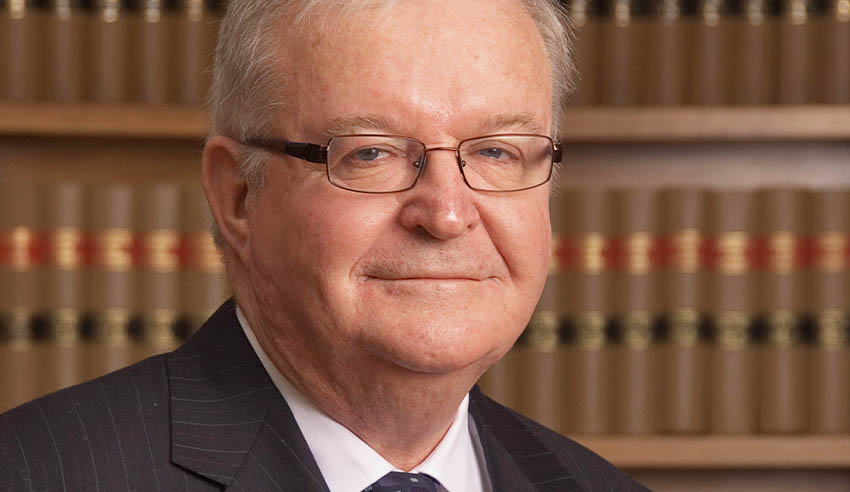It is crucial to view the law as showcasing the moral conscience of the society around us, but there are also limitations to this, says the Chief Justice of the Supreme Court of NSW.

More so than ever before our society is one which is defined and regulated by law, opines Chief Justice Tom Bathurst of the Supreme Court of NSW.
“These rules control how power may be exercised in our society and serve to prescribe standards of conduct by which we must abide in our everyday lives.”
However, such rules do not govern our collective behaviour “as if we were automatons”, Bathurst CJ noted, arguing that outside the law, our existence is more than just a legal abstraction.
“Our society is also defined and regulated by these values just as much as it is by the law, but this often passes unnoticed beneath the surface, in the realm of private conscience. [But] these two concepts are not as distinct as they might at first seem. The idea of ‘conscience’ has had a long history in the law,” he said.
Increasingly, his honour continued, the community thinks about the law in ways that echo “many of the same assumptions which underlie or are encouraged” by notions that the law reflects the moral conscience of society as a whole.
“In particular, when we come to debate changes to the law, we tend to conduct the debate on the footing that the proposed changes will represent a shift, sometimes, a profound one, in the moral values endorsed by our society,” his honour said.
“I think that a good example is the debate we have recently had around same-sex marriage, culminating in the nation-wide postal survey a couple of years ago. The practical legal effect of these changes would have been limited, however, there can be no doubt that the debate was seen to have importance far beyond the mere technical effect of the amendments proposed to the Marriage Act 1961.
“The debate was seen to be about the fundamental nature of the institution of marriage, and the moral values of society which it reflected.”
Such debates about which moral values ought to be reflected in the law illustrate why it can be beneficial to see the law as reflecting the moral conscience of society, Bathurst CJ submitted.
This is an integral aspect, his honour surmised, of how we secure the rule of law in this country.
“When the law loses any connection with public debate about the moral values which animate it, the law ceases to reflect the moral conscience of society. It becomes a weapon to be wielded according to the desires of whichever majority happens to control the legislature,” Bathurst CJ said.
“We become a society ruled by law, rather than a society with the rule of law. By contrast, when we, as a society, are encouraged to consider the moral values which underlie the laws we choose to live by, we reach beyond the concerns of our own narrow self-interest.
“We commit ourselves to shared fundamental principles which form the basis for the rule of law. Then, we can begin to see law as a reflection of the moral conscience of society.”
That said, as a collective we must be careful about using metaphors “unthinkingly”, his honour warned.
“It can be dangerous to use metaphors unthinkingly. We must remain aware that they are fictions and can be deceptive when they are pushed too far. To start with, the idea that the law reflects the “moral conscience” of a society tends to imply there is a coherent and systematic motivation underlying the many and various laws which have been enacted by the legislature,” Bathurst CJ said.
“As has frequently been pointed out, legislation is usually just as much the product of pragmatic compromise as it is the product of principled development. Equally, the idea tends to imply that it is possible to discern a singular and cohesive moral conscience in our society. This is by no means an easy feat in a country as multicultural and diverse as our own.”
Moreover, it is possible to focus too much attention on the idea that the law reflects the moral conscience of society, his honour added.
“A society is not a person and does not have a conscience. A society does not hold or possess moral values. When we use metaphor to say the law reflects the moral conscience of society, we can obscure these simple, and important, truths,” Bathurst CJ said.
“They are important because what matters in the end is how the members of a society treat one another in practice, not in the moral values which they may or may not choose to write into their laws.”
If society focuses too much on the metaphor of law as a reflection of the moral conscience of society, his honour concluded, “we can sometimes forget why this is important”.
“We can become too enamoured by the idea, at the expense of how it works in reality. It seems to me that if we are to navigate the complex relationship between the norms of the law and those of conscience successfully, then we need to bear this in mind,” he said.
“If we do not, we run the risk of increasing legal uncertainty which will ultimately detract from, rather than support, the rule of law.”

Jerome Doraisamy is the managing editor of professional services (including Lawyers Weekly, HR Leader, Accountants Daily, and Accounting Times). He is also the author of The Wellness Doctrines book series, an admitted solicitor in New South Wales, and a board director of the Minds Count Foundation.
You can email Jerome at: